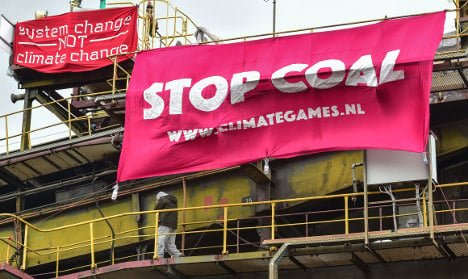A police spokeswoman said the clashes occurred on Saturday in Lausitz when around 300 demonstrators forced their way into the Schwarze Pumpe coal-fired power station belonging to Swedish state-owned energy giant Vattenfall.
The protests are part of the “Break Free” campaign launched by Greenpeace and other environmentalist groups in countries including the US, Canada, and Brazil to oppose the use of fossil fuels.
The campaign, which began earlier this month, ends this weekend in Germany.
Police said that a group of activists attacked Vattenfall's security guards, tore down fences and stormed the premises.
A spokesman for the company said that firecrackers were also thrown.
Two protestors were injured during the arrests and taken to hospital, police said.
But a spokeswoman for the anti-nuclear and anti-coal coalition Ende Gelaende (Here and No Further) insisted that it was police officers who started the violence when protestors wanted to leave the site.
In addition, pro-coal demonstrators attacked the protestors in the skirmishes, she said.
“I am not aware that activists started the violence,” the spokeswoman said.
Members of Ende Gelaende have been blocking the Welzow-Sued mine since Friday and managed to prevent some of the coal deliveries from arriving at Schwarze Pumpe by rail on Saturday, forcing the plant to reduce its output.
Organisers said that more than 2,000 people from a number of different European countries took part in the protests, blocking rail access at some points for more than 40 hours.
The protestors were currently discussing how long to continue the demonstration, the spokeswoman for Ende Gelaende said.



 Please whitelist us to continue reading.
Please whitelist us to continue reading.